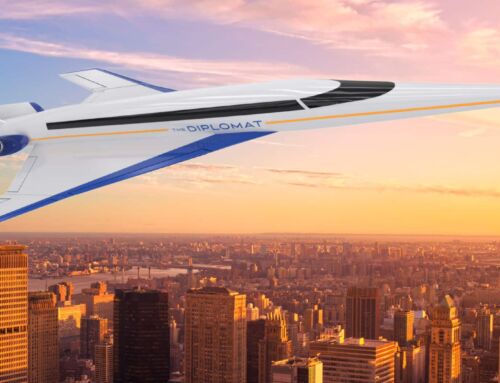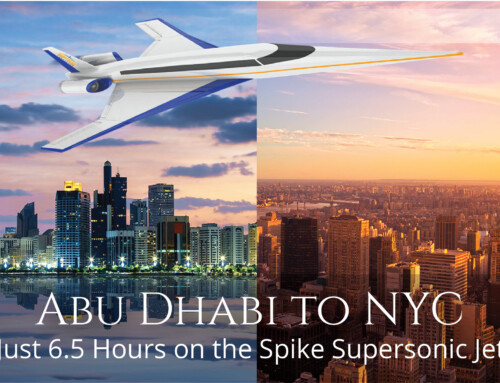
The Concorde, as the world’s first supersonic passenger jet, symbolized a technological leap forward, but its impact was limited by challenges in noise, fuel efficiency, and operational costs. Today, Spike Aerospace is leading a new era of supersonic travel, tackling these challenges with advanced technology to bring fast, efficient, and sustainable travel to a global market.
1. Reduced Noise and Sonic Boom Mitigation
The Concorde’s sonic boom was a significant drawback, leading to restricted flight routes and limiting supersonic operations. Spike Aerospace is engineering a quieter supersonic jet, the Spike Diplomat, with innovative aerodynamic designs and materials to minimize sonic boom impact, enabling supersonic flights overland. This breakthrough would allow the Spike Diplomat to open up new, faster routes that the Concorde couldn’t access.
2. Fuel Efficiency and Environmental Responsibility
With high fuel consumption and emissions, the Concorde struggled to meet the evolving environmental demands of modern aviation. The Spike Diplomat supersonic jet incorporates fuel-efficient engines and lightweight composite materials to improve fuel economy, aligning with today’s standards for responsible aviation. By optimizing fuel use and integrating sustainable aviation fuel (SAF) where possible, Spike aims to create an environmentally conscious supersonic option that keeps pace with ecological priorities.
3. Advanced Aerodynamics and Optimized Aircraft Design
The Concorde’s design was groundbreaking, but it involved trade-offs in efficiency. Spike Aerospace’s design approach takes advantage of modern computational fluid dynamics (CFD) to refine the aircraft’s shape, creating a sleek, optimized aircraft design that reduces drag and maximizes fuel efficiency. This focus on aerodynamic performance supports a greater range and capacity, allowing Spike’s jet to achieve the reach and efficiency that earlier designs couldn’t deliver.
4. Enhanced Passenger Experience and Technology Integration
The Concorde’s cabin, while functional, lacked modern comfort features. Spike Aerospace’s design prioritizes the passenger experience, with a spacious, high-tech cabin. The company’s windowless cabin technology, which replaces traditional windows with high-definition screens, offers panoramic views and an immersive experience that surpasses standard in-flight visuals. Designed to cater to today’s high-speed travelers, Spike’s supersonic jet combines speed with an elevated passenger experience.
5. Economic Viability and Scalability
The Concorde’s high operating costs and limited scalability made supersonic travel exclusive and restricted. Spike Aerospace is developing its supersonic jet with cost efficiency and broad accessibility in mind. By balancing speed and operating costs, Spike aims to create a viable, sustainable business model that offers faster travel options to a wider range of operators, making supersonic flight a realistic choice for modern travel needs.
With these advancements, Spike Aerospace is poised to deliver a new kind of supersonic travel—one that combines speed, efficiency, and environmental responsibility in ways the Concorde couldn’t achieve. Through reduced noise, improved fuel efficiency, and a focus on passenger comfort, Spike Aerospace’s supersonic jet is set to transform the landscape of global travel, bringing the dream of sustainable, high-speed flight closer to reality.



